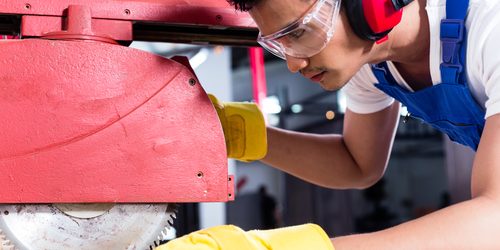
© Shutterstock
Pennsylvania manufacturing and business advocacy groups criticized the notion of legalizing recreational marijuana because of the employment challenges and workplace safety risks it entails, after Gov. Tom Wolf called for the legislature to take up the legalization of cannabis to help with the state’s economic recovery amid the pandemic.
Pennsylvania Chamber of Business and Industry President Gene Barr said that rushing into substantial policy changes without considering the impact it will have on the state’s workforce and business community would be a huge mistake.
“Pennsylvania legalized marijuana for medical purposes only a few years ago and employers report significant confusion interpreting how they’re expected to manage medical marijuana among the workforce,” Barr said. “It stands to reason lawmakers ought to at least address issues with the medical program before authorizing this massive expansion.”
David Taylor, president and CEO of the Pennsylvania Manufacturers’ Association (PMA), said legalizing recreational marijuana would be a major setback for unemployed and underemployed Pennsylvanians. Those who use recreational drugs may render themselves unemployable when it comes to the thousands of good-paying manufacturing jobs that are available at any given time, he said.
“Because manufacturing is the sector that adds the most value, manufacturing jobs almost always offer better wages and benefits than retail or service jobs. By mass-commercializing recreational marijuana, Pennsylvania will see increased usage, meaning fewer people will be eligible for these family-sustaining jobs, including the people who would benefit most from having them – the unemployed, underemployed, and people returning to the workforce, including former offenders,” Taylor said.
Furthermore, increased drug use is a risk to workplace safety, PMA noted. Employers are subject to federal Occupational Safety and Health Administration (OSHA) requirements and the Pennsylvania Workers’ Compensation Act at the state level, in addition to many other federal and state laws and regulations. Employers’ licenses, permits, and insurance policies depend on maintaining a safe workplace.
Wolf, along with Lt. Gov. John Fetterman, called on the state legislature Thursday to consider the legalization of adult-use, recreational marijuana and direct revenue to important restorative justice programs in the commonwealth. Wolf also called for the legislature to take immediate action to decriminalize possession of small amounts of marijuana, changing the charge from misdemeanor of the third degree to a summary offense.
Wolf and Fetterman first called on the legislature to consider adult-use cannabis legalization in September 2019, following the lt. governor’s completion of a statewide “listening tour” on the subject.
PMA’s Taylor had raised concerns in a letter to Fetterman during his listening tour last year.
“Before manufacturing employers can allow a new worker on the plant floor, that employee must be able to test clean,” Taylor wrote. “Manufacturing involves heavy equipment, bladed instruments, chemical reactions, extreme temperatures, high voltage, and other operations that could get people seriously injured or even killed if not handled properly. A manufacturing workforce that is not sober threatens workplace safety.”
Meanwhile, Pennsylvania Chamber’s Barr said elected officials need to work on policies that promote job growth, such as tax and regulatory reform, infrastructure build-out, and liability protections against frivolous pandemic-related lawsuits.
“These pro-growth policies will help the business community navigate the uncertainty brought by the pandemic, while at the same time setting Pennsylvania on a course to increase our competitiveness and improve our business climate going forward,” Barr said. “A thriving private sector will in turn lead to more robust tax revenues for the Commonwealth.”


